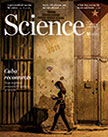
Retraction Watch readers, please join us in welcoming Shannon Palus to our team.
Palus, who has written for Discover, Slate, The Atlantic, and a host of other publications, joined us last week. She has a B.Sc. in physics, with a minor in anthropology, from McGill, where she worked at The McGill Daily. Since graduating, she’s worked as an intern at Idaho National Lab and as a fact-checker for publications including Popular Science.
It was Palus’s eye as a fact-checker, along with her passion for truth-seeking and digging, that convinced us she was perfect for Retraction Watch. She writes: Continue reading Meet the new Retraction Watch staff writer, Shannon Palus



